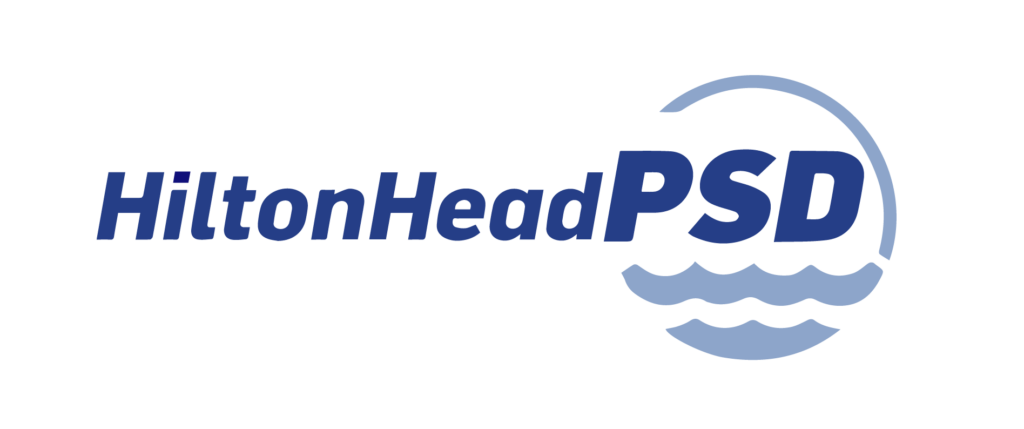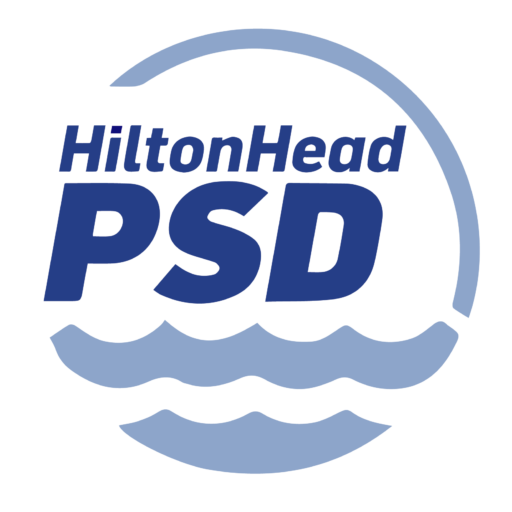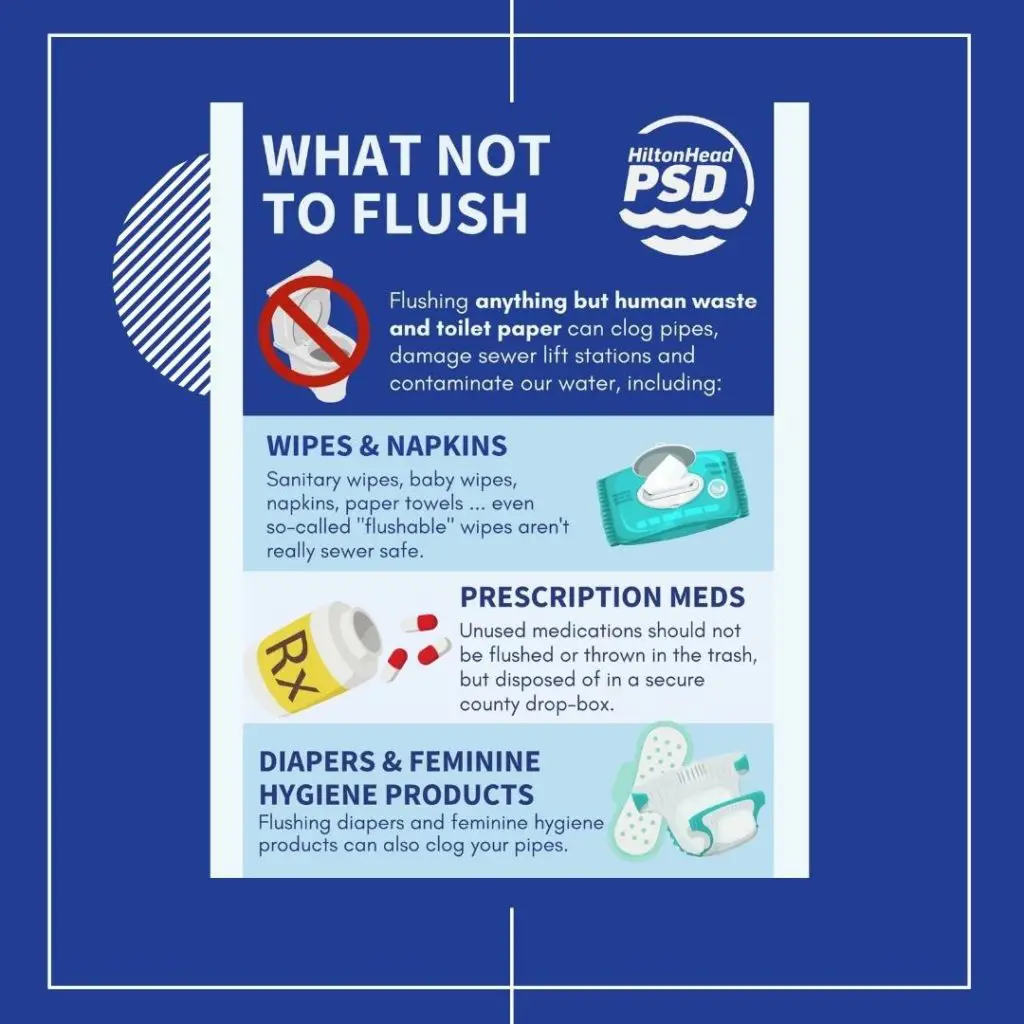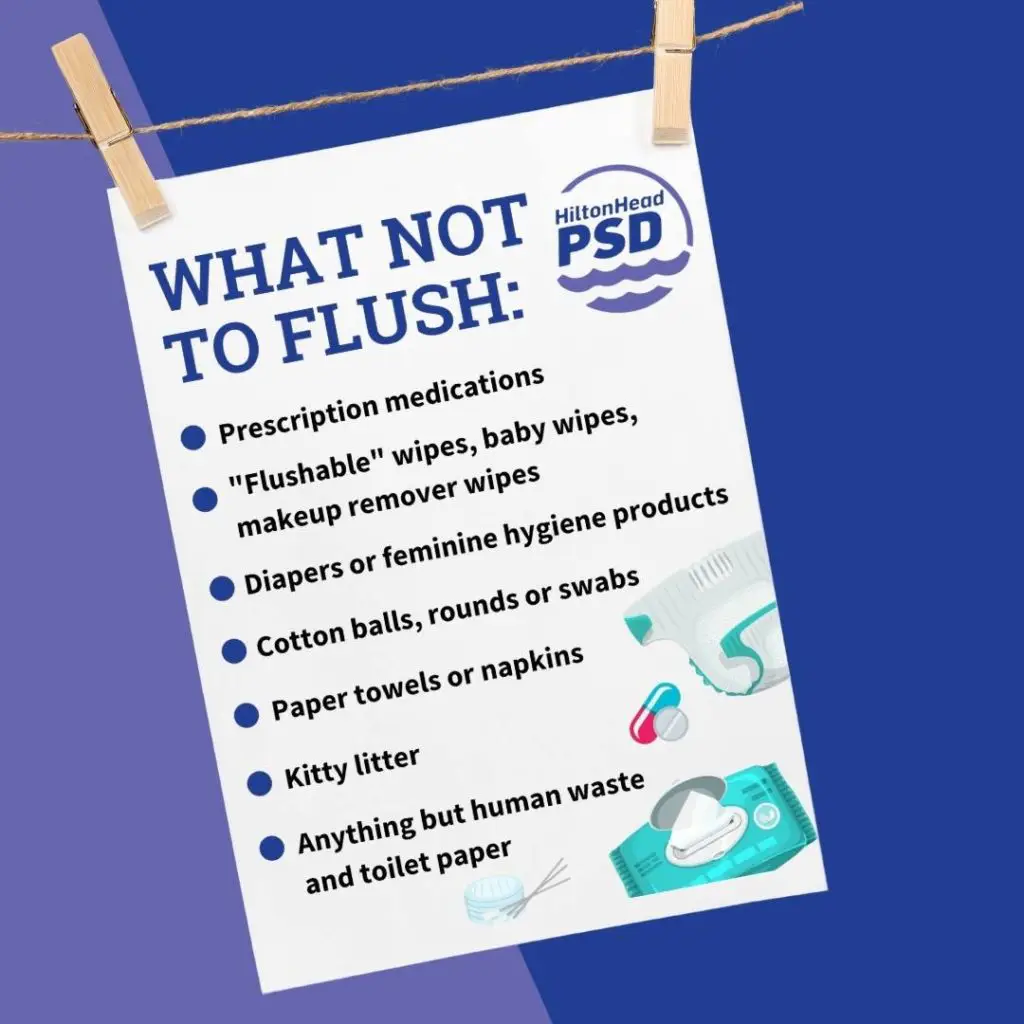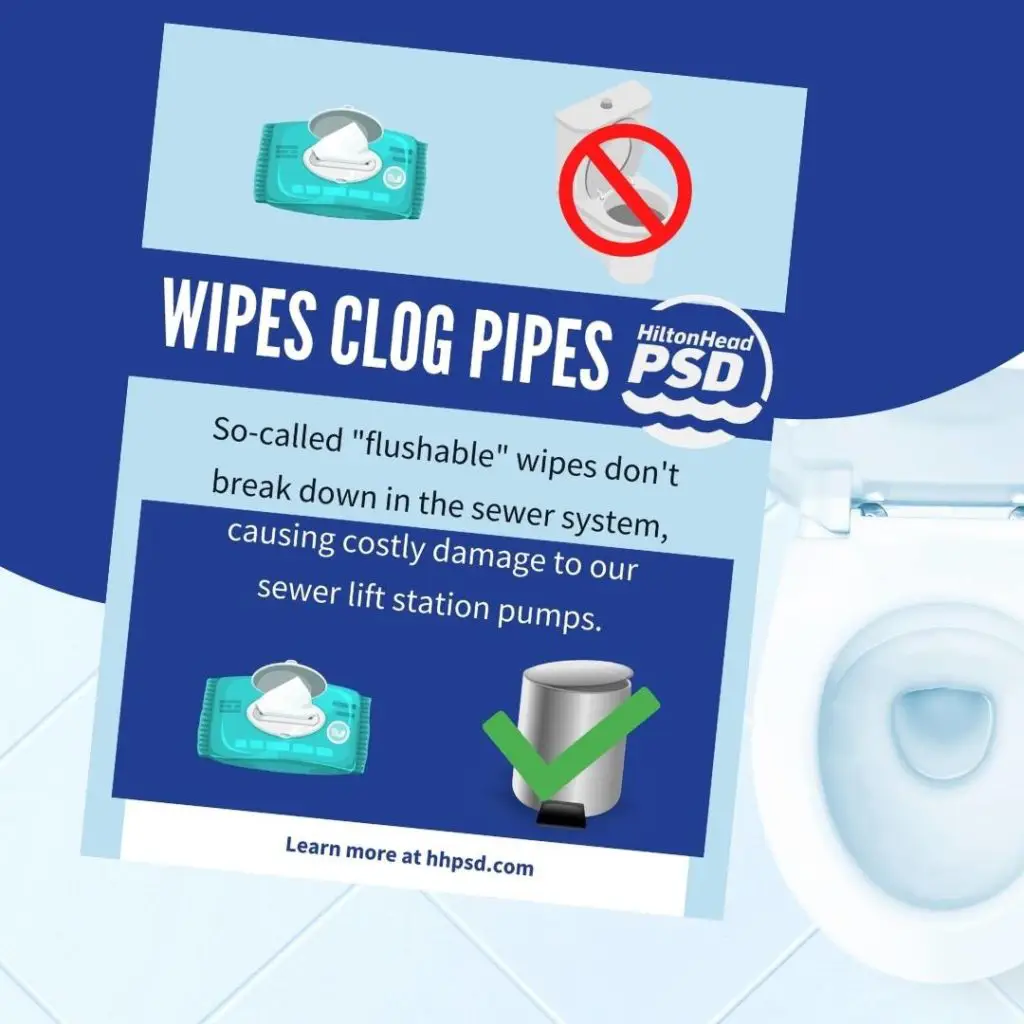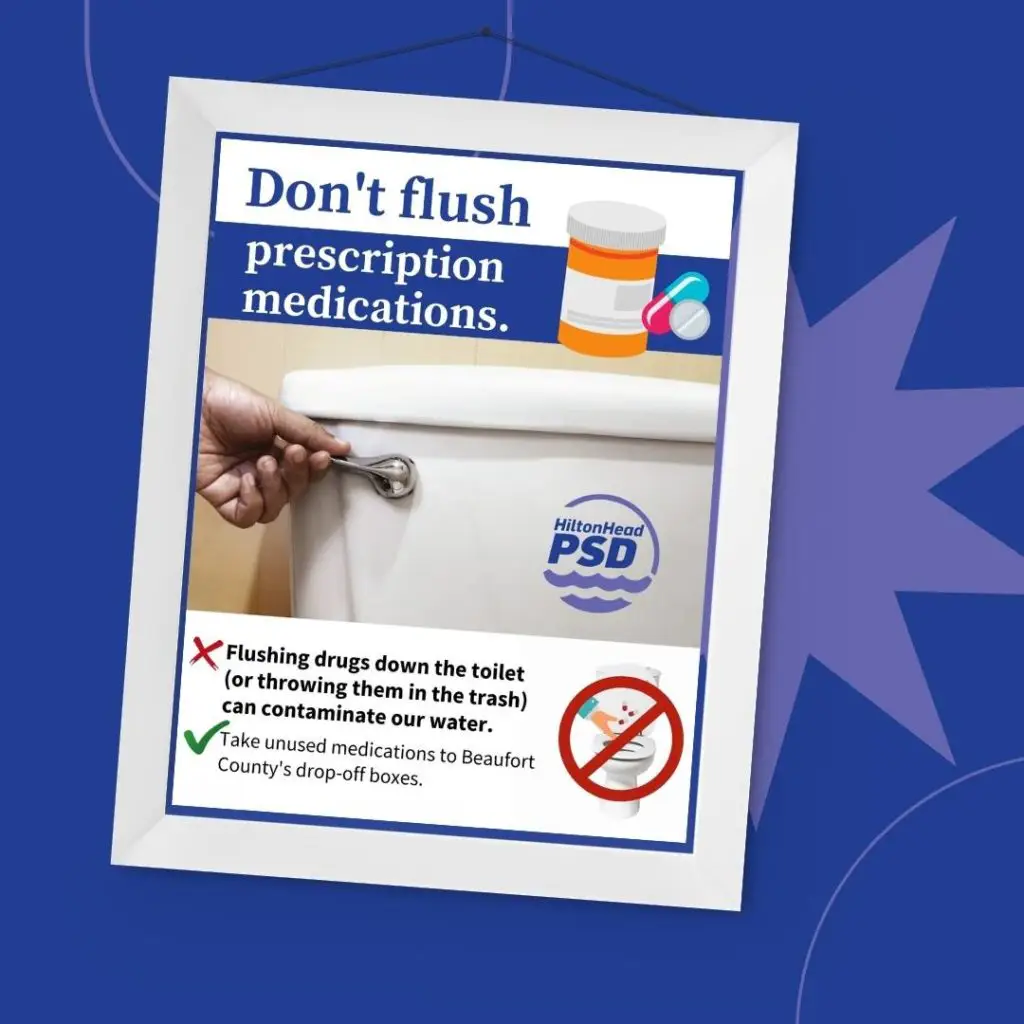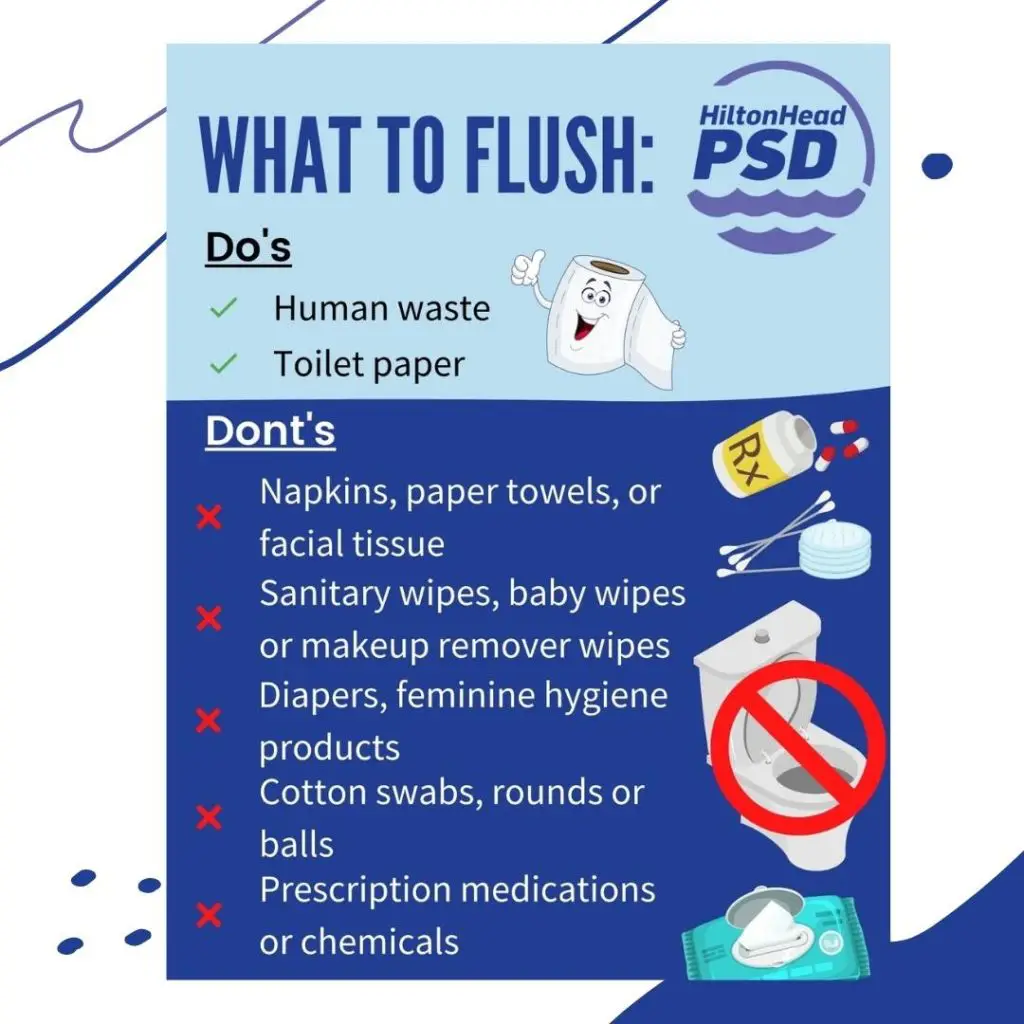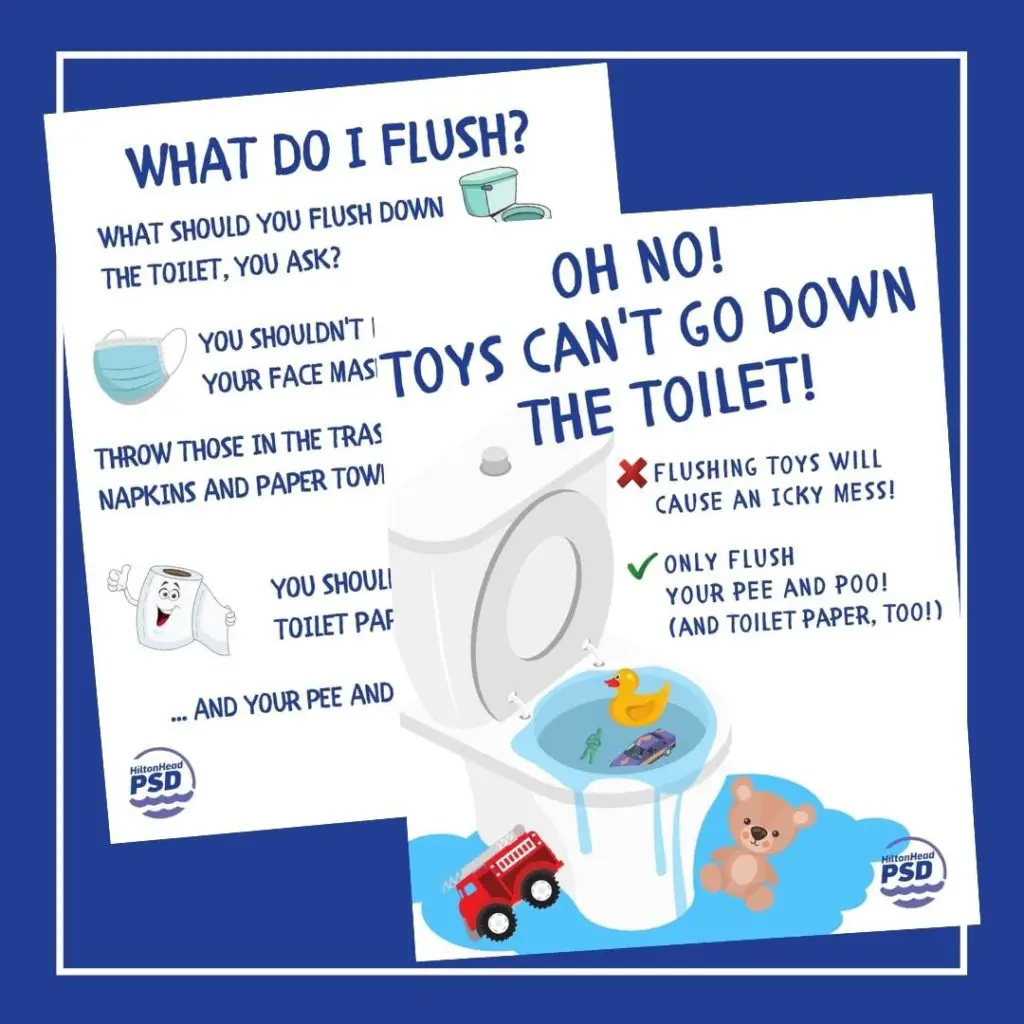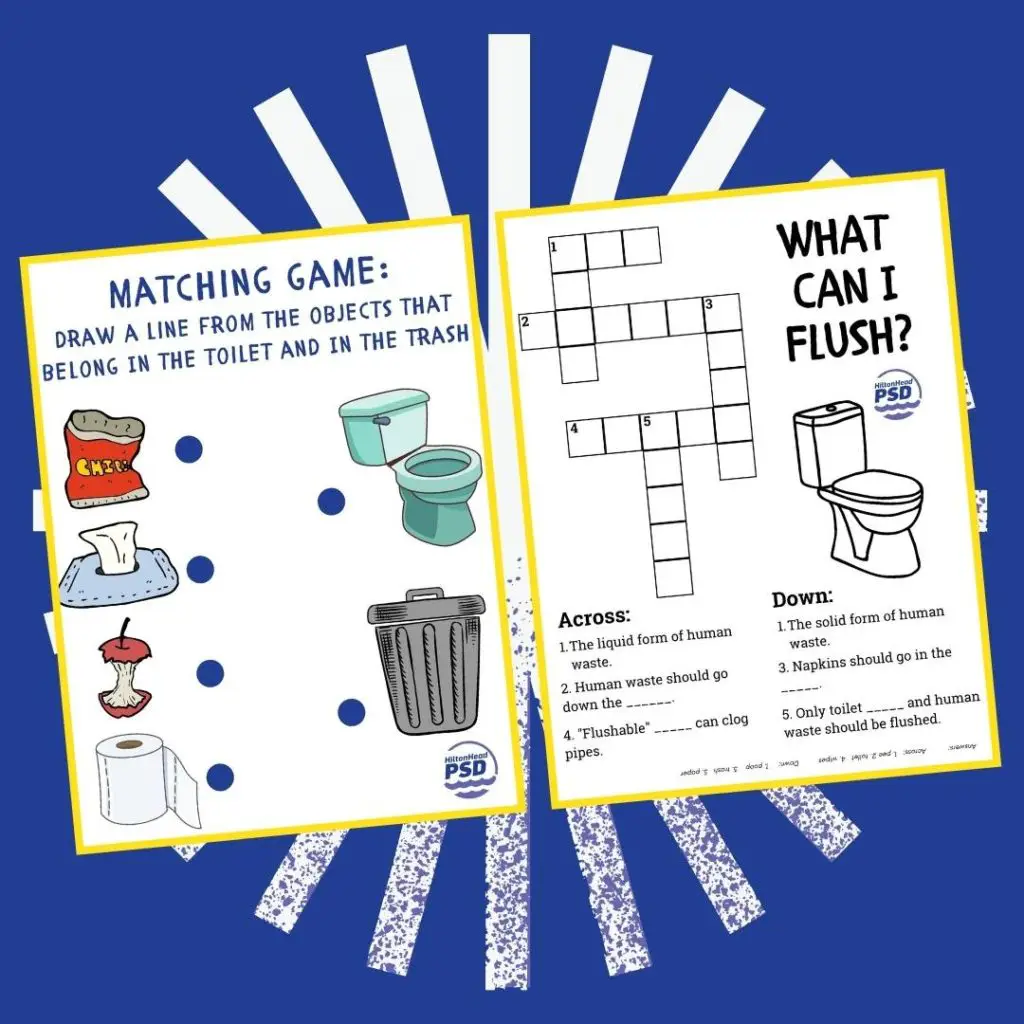What Not to flush
From disinfectant wipes to medications, keep your pipes clear of items that can clog sewers or make their way into your local waterways
What happens when the sewer system gets clogged
Hilton Head PSD operates a pioneering recycled water program — our public sewer system takes away the raw wastewater generated in our homes and businesses, and our Recycled Water Plant recycles it into beneficial reuse water that is used for golf course irrigation and wetlands habitat nourishment here on Hilton Head Island.
But our sewer system — and your home or business’ plumbing system — is vulnerable to misuse from flushing items that should never be flushed. The PSD operates scores of sewer lift stations with submersible pumps to move raw wastewater toward our Recycled Water Plant. Additionally, hundreds of PSD customers are served by individual low-pressure sewer systems, which also utilize submersible pumps that are vulnerable to damage from misuse. In recent years, we have experienced tens of thousands of dollars in damage to these pumps because of the flushing of so-called “flushable” wipes and other inappropriate materials —including even bed sheets, mopheads, and t-shirts!
Do Not Flush:
- Wipes: Baby wipes, disinfectant wipes, etc.
- Paper towels and facial tissues
- Too much toilet paper
- Cotton balls, rounds or swabs
- Feminine hygiene products
- Dental floss
- Hair
- Bandages
- Medications and other hazardous materials
- Cigarette butts
- Fats, oil and grease
- Kitty litter
You could personally be responsible for the PSD’s costs of repairing its systems if you are found to be misusing them.
Damage to the PSD’s pumps and our island’s sewer system can cause environmental harm, and higher utility bills. Damage to your home or business’ plumbing can cause costly repairs. Flushing so-called ‘“flushable” wipes is a serious problem here on Hilton Head Island and around the country. The PSD needs your help to put wipes in the trash can — not down the drain.
Whenever you use the kitchen sink, the washing machine or the toilet, the wastewater all goes back to the same source — our local sewer system. When the wrong items go down the drain, it can damage the sewer system, causing sewer backups that could potentially release into the environment.
Free Community Downloads
Download these PDFs, print them out and hang them up.
Kids activity worksheets are also available.
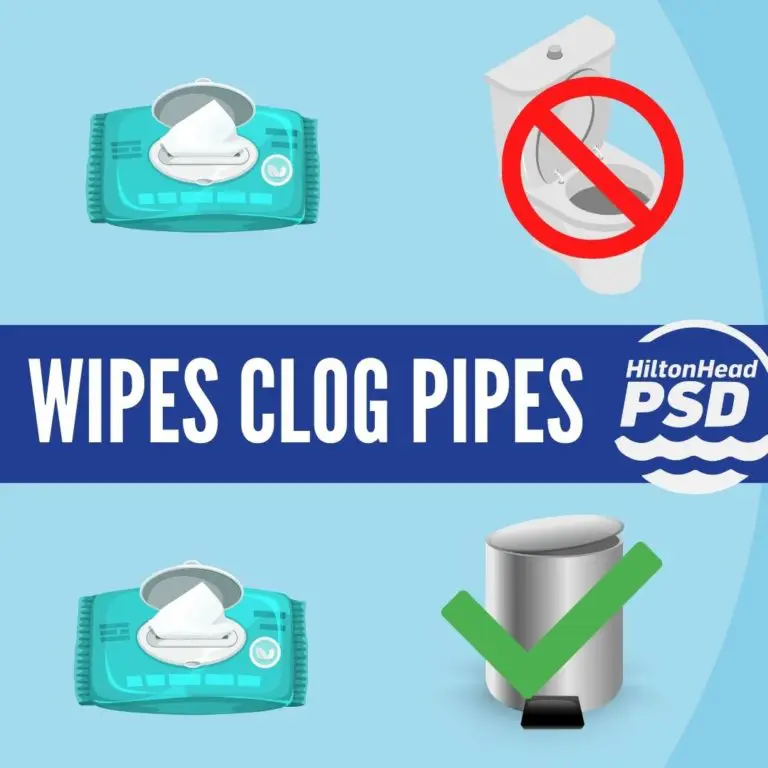
There is no such thing as “flushable” wipes
There are many materials that can clog your pipes that connect to the sewers and result in costly repairs. Perhaps the biggest culprit are baby wipes and even “flushable” wipes. No matter what the packaging says, these wipes don’t break down in the water in the same way toilet paper does. This causes them to clump up and get stuck in the pipes, accumulating until water and waste can’t get through. The result? Raw sewage could potentially back up into your home!
Even those products marked “flushable” are not.
“There is no wastewater recognized standard to ‘certify’ what is flushable other than toilet paper,” according to Brianne Nakamura, Senior Manager of Technical Programs in the Water Science and Engineering Center at the Water Environment Federation. “When in doubt, don’t flush it. Use the trash can.”
When homeowners use disinfectant wipes to prevent the spread of COVID-19, instead of discarding them in the trash, they are flushing them in the toilet. This has caused wastewater treatment plants to spend hundreds of thousands of taxpayer dollars on repairs. The Des Moines Metropolitan Wastewater Reclamation Authority, for instance, has spent more than $100,000 over the past year and deployed specialized block-clearing trucks about 30 times. U.S. municipalities spend at least $1 billion annually on maintenance to remove clogs caused by wipes, according to the National Association of Clean Water Agencies.
When in doubt, remember there are only four things you can flush down the toilet: toilet paper, feces, urine and vomit.
Safeguard your local waterways from medications
Old prescription medications, over-the-counter liquid, pills and even vitamins can unintentionally make their way to local waterways. Studies have found that medicines flushed down the drain become contaminates that can harm aquatic life and ultimately end up in our drinking water.
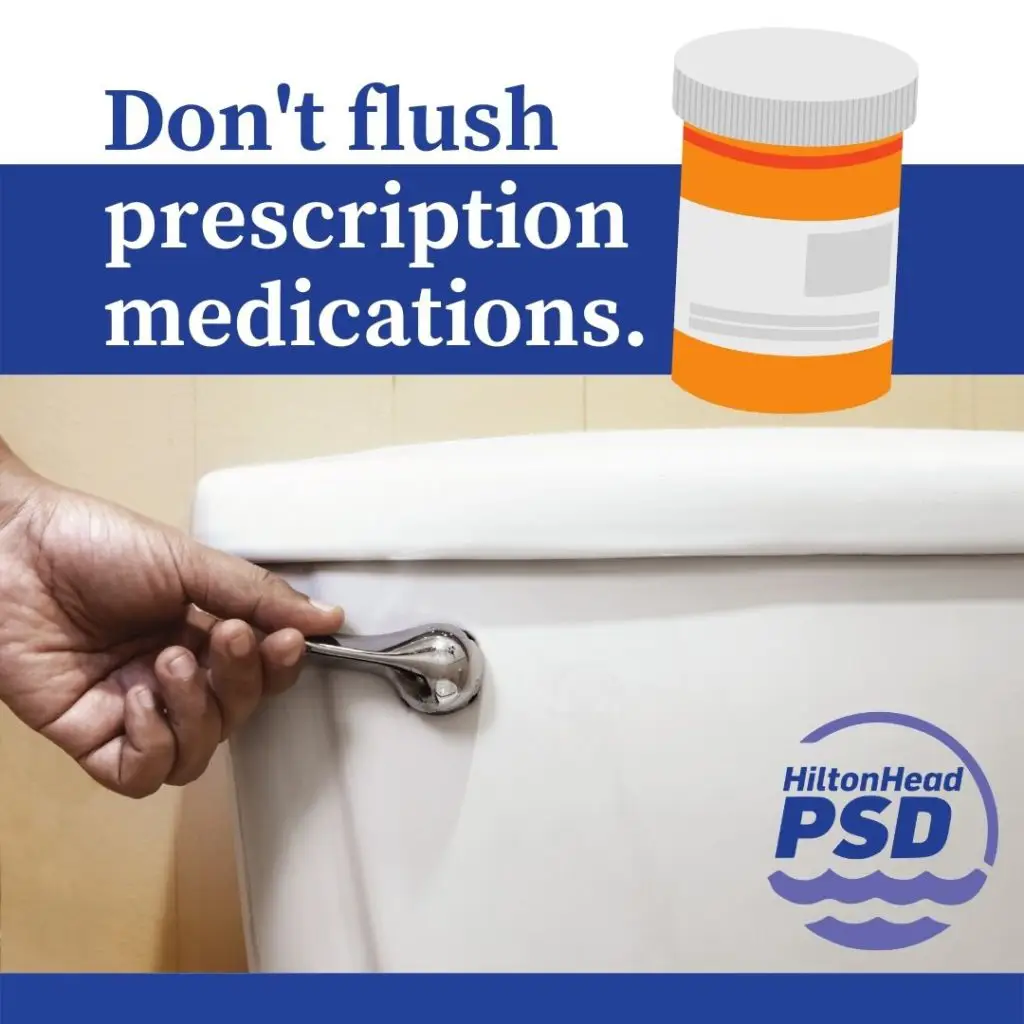
Drug Take-Back Boxes in Beaufort County
There are drop-off boxes in Beaufort County that are safe places to properly dispose of extra or unused prescription medications instead of flushing them into the PSD’s sanitary sewer system.
When you drop-off your medications (also accepting hypodermic needles), a Beaufort County Sheriff’s Office deputy will meet you in the lobby and place all of the medications in a sealed bag. Individuals are not allowed to use the box without a deputy present. The bag is then deposited into the secured box, which is bolted to the floor, and the drugs are burned. There is no ID or paperwork required. It’s a quick and free process.
The drop-off boxes on Hilton Head and in Beaufort are open Monday through Friday 9 a.m. to 5 p.m. The Bluffton location is open 8 a.m. and 5 p.m. Monday through Friday.You can also call to arrange a time after hours or on weekends .
More open drop-off:
- Beaufort County Sheriff’s Office – 70 Shelter Cove Ln., Hilton Head Island, SC 29928
- Beaufort County Sheriff’s Office – 2001 Duke St., Beaufort, SC 29902
- Bluffton Police Department – 101 Progressive Street, Bluffton, SC 29910**
- Chelsea Medical Center -719 Okatie Highway, Okatie, SC 29909
- CVS, Bluffton – 1006 Fording Island Road, Bluffton, SC 29910
- CVS Hilton Head Island – 10 Pope Avenue, Hilton Head Island, SC, 29928
- Ulmer Family Pharmacy – 68 Bluffton Rd. #6, Bluffton, SC 29910
- Walgreens, Okatie – 138 Okatie Center Blvd, Okatie, SC 29909
** In partnership with Bluffton Police Department and Lowcountry Alliance for Healthy Youth
Customers Only:
- Burke’s Pharmacy – 1101 Main St., Hilton Head Island, SC 29926
- Bluffton Pharmacy – 167 Bluffton Rd B, Bluffton, SC 29910
Free DisposeRx Packets:
- Wal-Mart Pharmacies
- Sam’s Club Pharmacies
